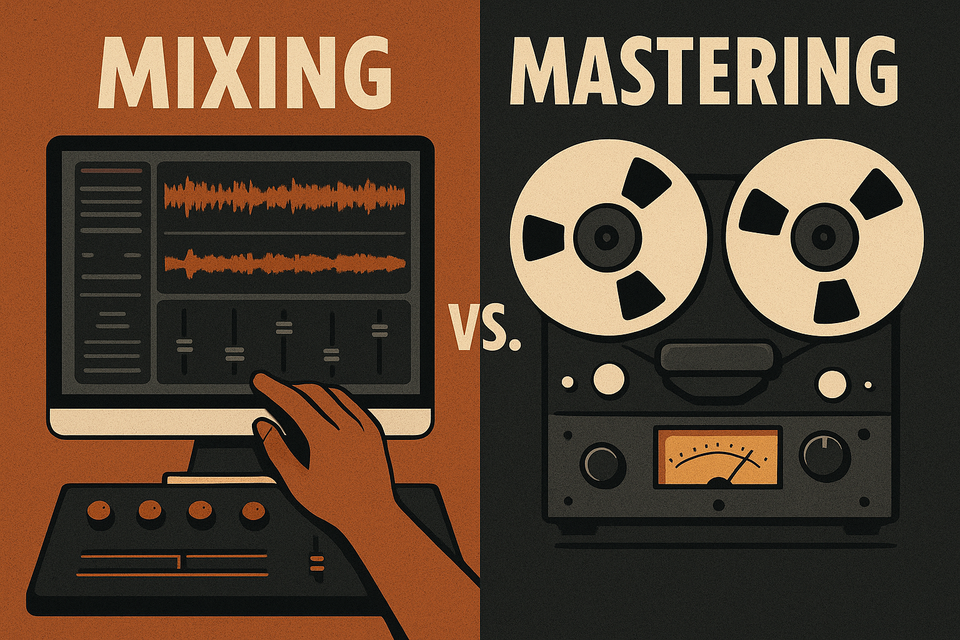What is the Difference Between Mixing and Mastering?

In music production, the terms mixing and mastering are often confused or used interchangeably.
However, they represent two very different but deeply connected stages that shape the final quality of a track.
Mixing – The Art of Balance
Mixing is the process of combining all individual tracks of a song
(drums, bass, synths, vocals, guitars, etc.) into a coherent and musical whole.
- Levels & Balance: Adjusting track volumes to create a clear relationship between elements.
- EQ & Frequency Management: Ensuring every instrument has its own place in the spectrum.
- Dynamics: Using compressors, limiters, and automation to shape punch and presence.
- Space & Depth: Adding reverb, delay, and panning to create a sense of dimension.
- Creative Decisions: Mixing is where the artistic vision of the song is emphasized and shaped.
The goal of mixing is a polished, balanced track where each sound is audible and contributes to the whole.
Mastering – The Final Polish
Mastering comes after mixing and focuses on the stereo mixdown as a single audio file rather than on individual tracks.
- Tonal Balance: Fine-tuning overall EQ, dynamics, and stereo width.
- Loudness: Adapting levels for streaming, clubs, radio, or vinyl.
- Technical Integrity: Ensuring no clipping, distortion, or true-peak issues occur.
- Consistency: Making all songs on an EP or album sound cohesive.
- Format Delivery: Preparing the track for its final distribution formats (WAV, AAC, DDP, streaming-optimized, or vinyl premasters).
While mixing is primarily creative, mastering is a hybrid of technical precision and subtle artistry,
ensuring that the music translates perfectly across all playback systems.
FAQ – Mixing vs. Mastering
What is the main difference between mixing and mastering?
Mixing balances all individual tracks of a song, while mastering polishes the final stereo mix for distribution.
Why is mixing important?
Because it creates balance, depth, and clarity, making sure each element of a song works together musically.
Why is mastering important?
It ensures tonal balance, loudness consistency, and technical quality across all playback systems and formats.
Can I release music without mastering?
Technically yes, but mastering ensures your track sounds professional, competitive, and ready for streaming or physical release.
Do mixing and mastering require different skills?
Yes. Mixing is more creative and artistic, while mastering demands both technical precision and subtle artistry.
About the Co-Author
CB MASTERING – partner in crime at NexaTunes Blog
📧 cbmastering@gmx.de · 🔗 linktr.ee/cb.mastering
